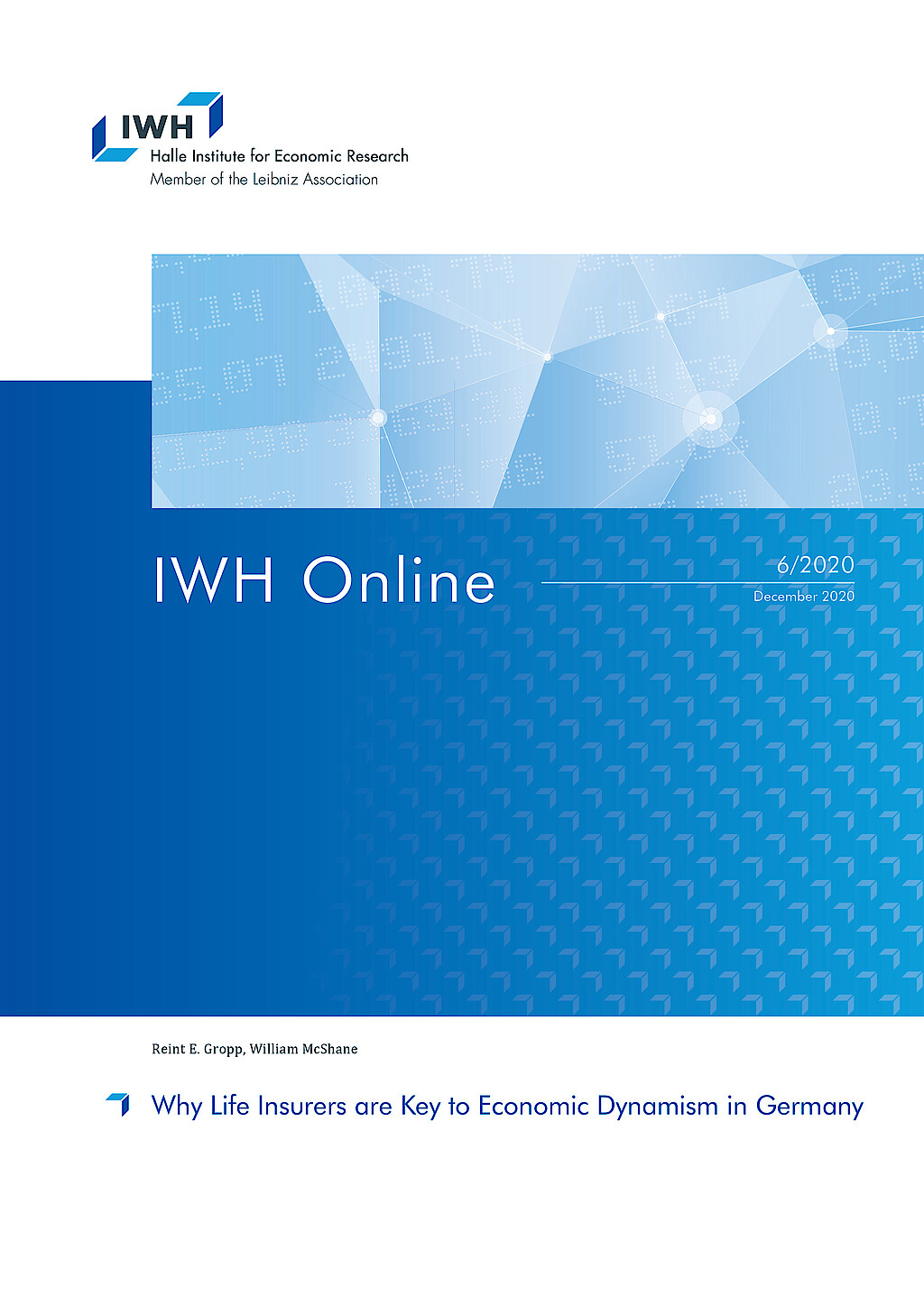Deutsche Lebensversicherer investieren nicht ausreichend in Start-ups
Whom to contact
For Researchers

President
If you have any further questions please contact me.
+49 345 7753-700 Request per E-MailFor Journalists

Internal and External Communications
If you have any further questions please contact me.
+49 345 7753-832 Request per E-MailIWH list of experts
The IWH list of experts provides an overview of IWH research topics and the researchers and scientists in these areas. The relevant experts for the topics listed there can be reached for questions as usual through the IWH Press Office.
Related Publications

Why Life Insurers are Key to Economic Dynamism in Germany
in: IWH Online, 6, 2020
Abstract
Young entrepreneurial firms are of critical importance for innovation. But to bring their new ideas to the market, these startups depend on investors who understand and are willing to accept the risk associated with a new firm. Perhaps the key reason as to why the US has succeeded in producing nearly all the most successful new firms of the 21st century is the economy’s ability to supply vast sums of capital to promising startups. The volume of venture capital (VC) invested in the US is more than 60 times that of Germany. In this policy note, we argue that differences in the regulatory and structural context of institutional investors, in particular life insurance companies, is a central driver of the relative lack of VC - and thereby successful startups - in Germany.



